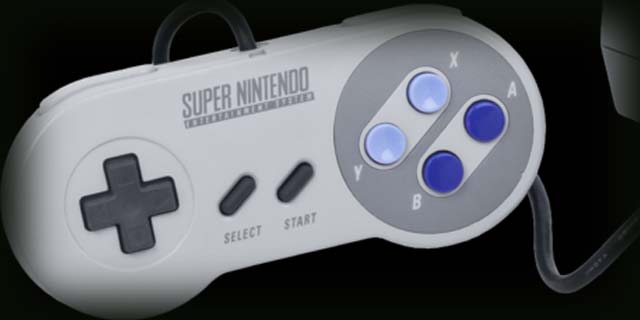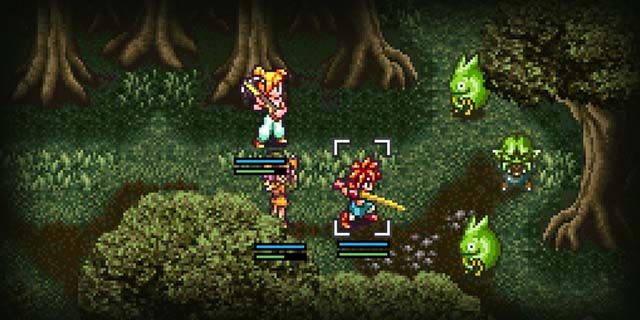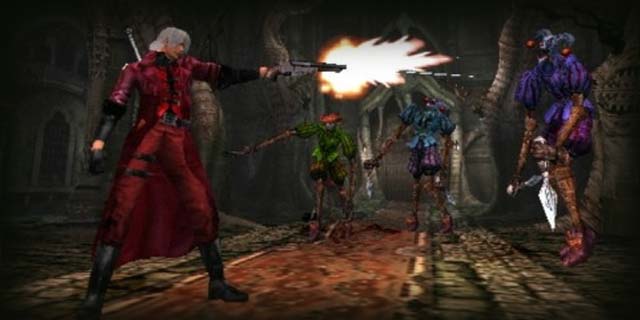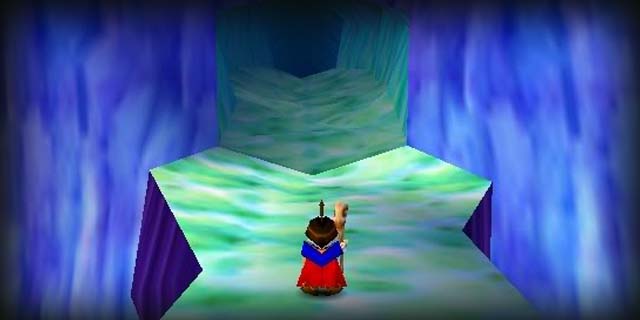
The whole “are video games art” debate isn’t something I’m going to get into today. Or maybe ever. Many have debated this topic already, most are more intelligent than I and are better connected to the industry. But I do want to touch on why I think games are as good an entertainment medium as any.
Movies, live theater, TV and books have a long, established history of being the “go-to” for when people want to relax and enjoy a story that isn’t their own. Video games, being the newest entertainment, are often ridiculed as something that only children or immature adults should dabble in. That it never could be more than a passing fad. That it would never resonate with people on a highly emotional level – one of the undeniable goals of “art”.
After playing games most of my life, I can honestly say that games do have an emotional impact on me. And I’m sure this is true for millions of others who claim video games to be among their favorite hobbies. I was trying to think of a factor that would prove this, and I was having a hard time doing so. I started thinking about my favorite characters, or my favorite songs. How a particular level was so beautiful that it made me pause the game and just look. Or how I fell asleep last night to a remixed song from a game made 15 years ago.

As I started to recall all these great games and stories I’d played through over the years, something else struck me. I remembered the games pretty well, but I also remembered where I played them. I remembered which system I’d played them on, when I’d played them and how I’d played them. I even remember the circumstances and my mood around playing the game. Games certainly do have the same emotional impact as movies and books, and it’s evident when trying to recall the circumstances around them.
I want you to go back and recall your favorite game ever. Most of you reading this can do this without much difficulty. Now, you probably remember how old you were, approximately. For me, it was Chrono Trigger. I was 12 years old and had just convinced my parents that it was a good idea to move the Super Nintendo into my room. My debating skills were at their peak; I argued that it won’t hog up the big TV and my sisters wouldn’t complain anymore. Would I play it past my bedtime with the volume low? Certainly not. Would I play it when I should be doing homework? Come on Mom, I won’t play it very much. I just want to avoid creating family conflict.
Calling the hunk of wood where my TV resided a desk is an insult to poorly made desks everywhere. The legs were different lengths. The wood was weathered; few could correctly identify the names of the colors that presented themselves. It was short. It was inadequate. But it was in my room. The TV I played it on was about 12 inches. The screen wasn’t good, and I had to fiddle with it to make it look right. But it was mine. And it was in my room. I could come home, close my door and play Chrono Trigger on my desk, with my controllers on my SNES in my room. The amount of perceived freedom greatly enhanced my experience with an already stellar game. We lived about a block from the ocean, and at night you could hear the barks of the sea lions. When I heard a mix of seagull cries and sea lion yelps while the Zeal theme was playing… it’s hard to explain how distinctive that was.
I’ll bet you 10 gamers out of 10 have small stories like this. “Oh, you wouldn’t believe it, I couldn’t find that stupid door because I was playing in my grandparents’ attic and they didn’t have any curtains so the sun would glare right up against the TV screen. It was so annoying!” Stories of how emotional relationships start by playing an online game together, or how a game designer’s love of video games was cemented when they beat the first boss in Blaster Master. The experiences exist. They’re out there. If you get a chance, I beg you, listen. It is a powerful emotional connection, a similar one that is shared by art enthusiasts who tell others about the first time they saw van Gogh’s “Starry Night.” Or movie buffs who will admit to failing to remember their anniversary one year, but will never forget where they first saw Taxi Driver.

I really can’t think of a better example of this notion than Devil May Cry on the PS2. Games had never seen the amount of sheer violence displayed at the incredible speed and framerate of which the PS2 was capable. The Gothic backdrop and and undead themes fit beautifully with the insane, over-the-top battles and bosses. Even more than 10 years after its initial release, it is still considered by some to be one of the best action games ever.
In my last year of college, I finally left the shelter of the university residences and moved in with five friends off campus. It had good-sized rooms, cheap rent and no rules. If having a SNES in my room was freedom, this was an entirely different planet. Literally zero adult presence, no set meal schedule, no loud noise fines and six guys living together meant a large collaboration of games, gaming accessories and game consoles. It was the video game U.N., and all of us had a full membership. I remember counting between us – we had 216 games and seven different consoles – many of which I hadn’t had access to before.
I wanted to begin my previously-nonexistent PS2 experience with a game that would blow me out of the water. Something I’d never experienced before. My buddy said “No problem. You played Devil May Cry yet?” I hadn’t. But for the rest of the day, it was all I did. I didn’t go to the bathroom, I didn’t eat, I didn’t drink anything non-alcoholic (remember, college). But for the rest of the responsibility-free day, I had all five of my roommates come in to see what I was doing. “Oh man, that game looks awesome. What’s it called?” “Hey Hen, we’re ordering pizza, you in?” I’d swear loudly when I died, and laughter ensued from the hallway. I’d yell downstairs for help when I couldn’t beat a part. My oh-so-helpful roommate would sit on the bed behind me, reminding me that I shouldn’t let the enemies hit me and that I should probably kill them. It was a totally new, fantastic game and I was experiencing it in a totally new, fantastic setting.

It helps when a game is good, but memories of your surroundings will probably come back to haunt you just as much when dealing with bad games. I’ll never forget the helplessness I felt when playing through Quest 64. I was about 14. A girl had called me up, asking if her older brother could borrow my N64 like he did last weekend to play Goldeneye with his friends. Nope, sorry! I had a brand new RPG to play and I’d be busy with it all weekend. (Besides, her older brother had messed up the video output upon returning it and I wasn’t about to go through the inner turmoil of bringing that up.)
I started out with naive innocence and optimism; the game had even come with a poster! I stumbled through the game, trying to use the GamePro guide when I could. But it wasn’t detailed enough to help get me past one of the most annoying dungeons ever: the Ice Caves. The place is a fiendish labyrinth, aided by crappy graphics, an unhelpful map and nearly-identical routes. I spent at least 97 minutes being lost. I know it was at least that amount, because I had the movie Clueless playing on the other TV. From start to finish, I heard Alicia Silverstone’s quick-witted, selfish teenager emerge into an even wittier, yet far-more-caring person and falling into the arms of the always-delightful Paul Rudd. The only character development I went through was going from inner rage to inner turmoil to inner shock.
After finally reaching the end, I emerged from the bat-filled, ice caves of boredom into… the town I started in. Was it a sister town that just happened to look identical and have identical music? No. I had somehow gotten turned around, probably multiple times, and ended up right back where I started. Heartbroken doesn’t begin to describe it; that frustration building inside me as the NPC guard stood there staring at the screen, not caring about my plight, not helping me, was all I could take. I sighed, saved and turned off the game. I wouldn’t come back to it for a few days. When you’re 14, quitting games for two days is like quitting food for two days.
I won’t be forgetting Chrono Trigger, or Devil May Cry, or even (sigh) Quest 64. But I might forget my keys at work. No worries. Remember that time we got locked out of the house and we passed the time with Pokemon Blue?
What positive memories you do remember when playing your favorite game?



















